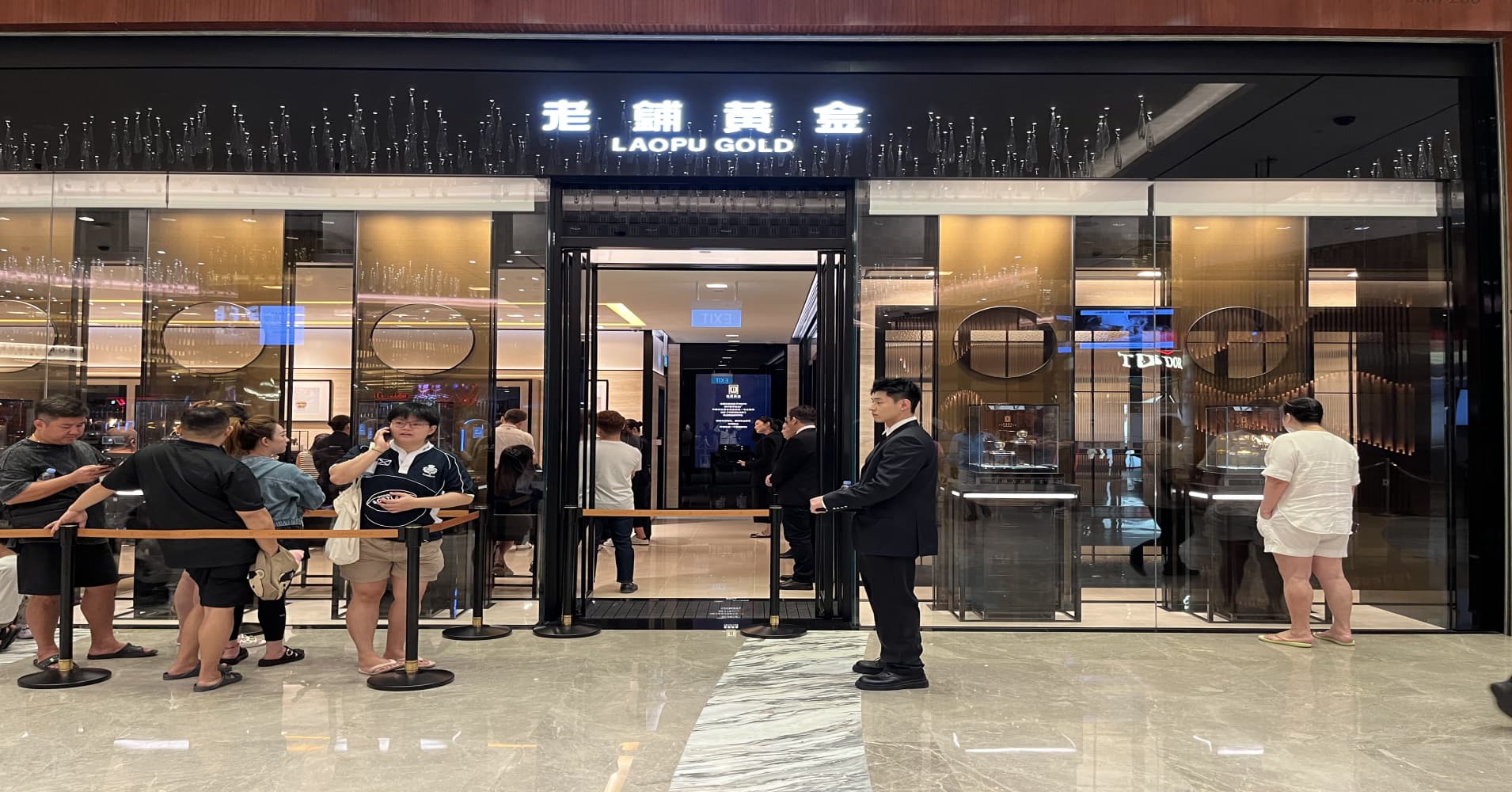Chinese Jeweler Challenges Cartier with Timeless Techniques in Singapore

Laopu Gold: A New Player in the Global Luxury Jewelry Market
Laopu Gold, a rising Chinese jewelry brand, has made its mark by opening its first overseas store at Singapore’s iconic Marina Bay Sands. The company aims to position itself as a global luxury brand, leveraging traditional Chinese craftsmanship and modern design elements.
A Growing International Presence
The store opened on June 21, just outside the Marina Bay Sands casino, and quickly became a popular destination. During the first two weekends, customers faced wait times of one to two hours, according to an employee. The store's sleek design mirrors that of nearby luxury brands like Patek Philippe, with golden deer and lotus sutra urns displayed against black panels, creating an almost museum-like atmosphere.
Jessie Lim, a 52-year-old Singaporean, shared her positive experience after purchasing a bracelet and a butterfly necklace for her daughter, spending over $4,000. She praised the intricate designs, including double-layered butterfly wings and diamonds embedded in the pieces.
High-Profile Endorsements and Popularity
The brand has also caught the attention of high-profile figures. NBA player Victor "Wemby" Wembanyama was seen wearing a Laopu pendant necklace during a visit to Beijing. This endorsement highlights the brand's growing appeal among international audiences.
On Chinese e-commerce site Tmall, the hand-crafted gourd-shaped pendant is a top seller, with prices ranging from 12,520 yuan ($1,747) to 29,250 yuan. Laopu's success is not just limited to online sales; its annual report shows a significant increase in China sales, reaching 9.8 billion yuan ($1.37 billion) in 2024, a 166% growth compared to previous years.
Financial Success and Strategic Moves
Laopu's financial performance has been impressive, with shares surging over 2,000% since its public offering in Hong Kong in June 2024. Despite the rise in gold prices, the brand has managed to stand out against European luxury giants, whose China sales have declined due to weak domestic consumption.
In May, Richemont, the parent company of Cartier, warned investors about Laopu's impact, urging the need for innovation and creativity to maintain brand desirability.
Local and Global Expansion
For its Singapore venture, Laopu introduced an exclusive diamond-inlaid gold cross, alongside its popular hulu necklace, which draws on Chinese folk beliefs and Taoist culture. Despite long wait times, locals like Xew Ling, a 60-year-old construction business owner, have returned to shop when lines were shorter.
Even office workers near the landmark have taken advantage of lunch breaks to avoid long queues. Juliana Go, a 58-year-old Singaporean, noted that her office purchased multiple items, highlighting the brand's appeal beyond just design.
Challenges and Future Prospects
While Laopu's initial success is promising, questions remain about its ability to sustain this momentum globally. Li Jie, a professor and director of the Luxury Brand Research Center of Shanghai Jiao Tong University, believes Laopu's rise is based on 16 years of effort and addressing the needs of middle-class Chinese consumers.
Despite its exclusivity, Laopu rarely offers discounts, maintaining high prices even when gold prices drop. Analysts from Nomura note that the company plans to open a store in Japan next year, signaling further expansion.
Lessons from the Past
Laopu's journey has not been without challenges. After a soft patch nearly a decade ago, the company had to close some stores. However, under the leadership of founder Xu Gaoming, who took direct control of product research and development in late 2016, the brand has regained its footing.
Oliver Wyman consultant Dave Xie points out that Singapore's large ethnic Chinese population and visa-free policies have helped Laopu establish a foothold in the region. Other Chinese brands, such as Florasis, have also used heritage-inspired designs to attract global consumers.
A Bigger Trend
Laopu's story is part of a broader trend of Chinese brands expanding globally, from Pop Mart's Labubu collectibles to BYD's electric cars. According to Ashley Dudarenok, founder of ChoZan, local brands have already captured seven of Tmall's top 15 luxury handbag rankings.
As Chinese brands continue to grow, they are challenging Western counterparts, adapting to fast-changing consumer demands at home. Chen Luo, head of China consumers research at BofA Global Research, notes that while many Chinese companies may fail, those that succeed are giving Western brands a run for their money.
Conclusion
Laopu Gold's presence at Marina Bay Sands marks a significant step in its journey toward becoming a global luxury brand. With a blend of traditional craftsmanship, strategic expansion, and high-profile endorsements, the brand is well-positioned to challenge established players in the luxury market. Whether it can maintain its momentum remains to be seen, but its early success suggests a promising future.
Post a Comment for "Chinese Jeweler Challenges Cartier with Timeless Techniques in Singapore"
Post a Comment